Comic Cure for
Delusional Democracy
Comic Cure for
Delusional Democracy
Platos Republic
Gene Fendt
LEXINGTON BOOKS
Lanham Boulder New York London
Published by Lexington Books
An imprint of The Rowman & Littlefield Publishing Group, Inc.
4501 Forbes Boulevard, Suite 200, Lanham, Maryland 20706
www.rowman.com
16 Carlisle Street, London W1D 3BT, United Kingdom
Copyright 2014 by Lexington Books
All rights reserved. No part of this book may be reproduced in any form or by any electronic or mechanical means, including information storage and retrieval systems, without written permission from the publisher, except by a reviewer who may quote passages in a review.
British Library Cataloguing in Publication Information Available
Library of Congress Cataloging-in-Publication Data
Fendt, Gene, 1955
Comic cure for delusional democracy : Platos Republic / Gene Fendt.
pages cm
Includes bibliographical references and index.
ISBN 978-0-7391-9390-7 (cloth : alk. paper)ISBN 978-0-7391-9391-4 (electronic)
1. Plato. Republic. 2. DemocracyPhilosophy. I. Title.
JC71.P6F46 2014
321'.07dc23
2014018795
 TM The paper used in this publication meets the minimum requirements of American National Standard for Information Sciences Permanence of Paper for Printed Library Materials, ANSI/NISO Z39.48-1992.
TM The paper used in this publication meets the minimum requirements of American National Standard for Information Sciences Permanence of Paper for Printed Library Materials, ANSI/NISO Z39.48-1992.
Printed in the United States of America
ad majorem civitatis dei gloriam
Preface
And would you be able to persuade, us not listening?
Polemarchus, Rep (327c)
Jack Gilbert, in Orpheus in Greenwich Village, reimagines the poet going down out of the light. Looking up as he tunes his lyre, he sees the gathering beasts: they have no ears. Let Gilberts Orpheus stand, as a ghost at the head of this book, exhibiting how the modern age has improved on Polemarchus.
This book works within that school of interpretationone as ancient as Aristotlewhich holds that Platos dialogues are mimeses: the kind of thing that cannot be correctly understood, or work correctly, if read as purely philosophical essays, like the works of Aristotle. Within that modusoperandi, I will show how Socrates work in the dialogue has implications for Platos work on his audience, and so for Republics work on, and significant insights into, fundamental problems in our contemporary social and political world. This modusoperandi does not presume that Plato is, under cover of the dead, giving arguments to defend his most particular philosophical theses, rather, the argument in the dialogues is what we can better understand as only the philosophical surface of the dialogue, so that in order to understand the work of his mimeses we need also to consider (2) how the stories, poems, and events, as well as the arguments within a dialogue affect the characters, and (3) how the interactions of the characters (including, but not limited to, their arguments) are meant to affect us. The introduction argues that this three level reading is part of what is required by the universal recognition of Platos work (including Socrates definitions in Republic) as mimetic. As general orientation to the project, then, I must set out something of what I think is meant by this wide-reaching concept.
In his powerful reorientation to our understanding of this term, Stephen Halliwell argued that the mimetic gave the ancients a unified conception of art which gathered together a wide variety of practices sharing a representational cum expressive character legitimately regarded as a coherent group. the introduction argues that among the ancients the mimetic is first of all an emotional experience, thus I would reverse the order of terms Halliwell uses: the mimetic arts share an expressive cum representational character, have emotional as well as intellectual aims. This point of order is clear in Socrates requirement that education begin with music (understood as including all the arts), and that the musical-cultural surrounding of the children works on them without their awareness and before reason is active, putting their souls into a kind of harmony which allows them to be able to listen to reason when it does arise (401b402a). Likewise in Laws, the Stranger extends this mimetic and emotional work of Apollo and the muses to all ages; each age, because of distinctive passional inadequacies or excesses, needs a different kind of music to allow their souls to be pulled more easily by the golden cord of reason, which connects human beings to the gods (653c654a, 664b666d). This puppet image seconds Republics consideration that the mimetic works before reason since the puppet is worked by distinct cords of different kinds (reasons is golden, others are of baser, stronger metal, some more brittle or prone to rust). The golden cord cannot work the puppet alone, but requires some harmony with the others; the others can work the puppet against (so, without) reason.
So, any critical reading of Platonic mimesisof any dialoguemust not only consider three levels of argumentative effect (what the arguments say, what they imply to each interlocutor, what the arguments between interlocutors imply to us), but also be aware of the emotional effects and changes among the characters due to and in their interactions, of which argument is only a part (as is always the case in drama). In our criticism and explication of Plato, then, we must first become aware of the passions the interlocutors are confessing or revealing. Secondly, we must notice how these are being worked upon through everything going on in the dialogue. And finally, we must also become aware of the kinds of passions Plato might be raising and working on in us through his mimetic construction of the dialogue. This last effect Aristotle called catharsis, purification, and posited as the final cause of (at least) tragedy, if not (as I would argue) of comedy and all other mimetic arts. So then, any logos concerning the work itself (Republic,kathauto) must play into the other speech about its work prostatheatra (cf. Po 1449a78)in the theatre of Platos readers, in one democracy and another.
Socrates presentation of the mimetic within both Republic and Laws as that which, in the healthy city, both prepares the soul for and keeps it in tune with reasons discourseand which in every other city does otherwiserequires us to think that Socrates himself must use his own not insignificant arts to accomplish that purpose with his interlocutors; Plato likewiseunless he is merely exhibiting the foolishness of Socrates and the Athenian Stranger in thinking the arts to be so significant. Even then we could still ask the question: what is Plato trying to accomplish inus by presenting such a (foolish) interaction and claim? The mimesis of such a comedy itself has a purpose, aims at some good. The Socratic distinction between the verbal lie and the true lie further certifies this orientation regarding the mimetic: we rightly use verbal lies (fictions) in order to lead a person who is deluded (or suffering under a true lie) out of his delusion and closer to the truth of things (382ad). But delusion is not mere ignorance; it is a falsity to which we are passionately bound, a corruption of mind due to the tyranny of insubordinate eros, or to use the Freudian term, delusion is error that is highly cathected. If delusion (or the true lie) were mereignorance, then a fiction or a work of mimetic art would not be the appropriate cure; we should, rather, simply say what is the case or give a mathematical or dialectical proof. However, as Socrates first fiction in
Next page
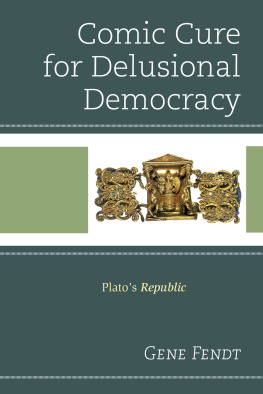
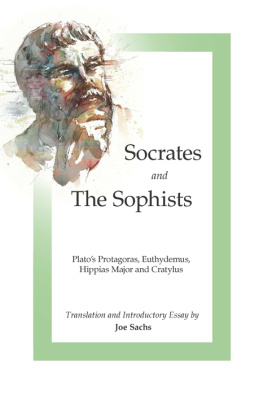
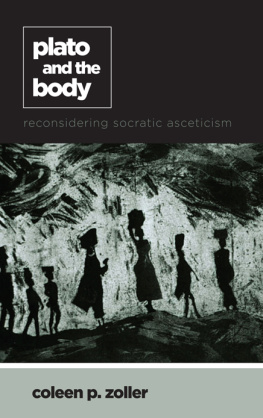
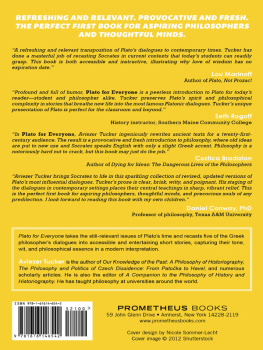
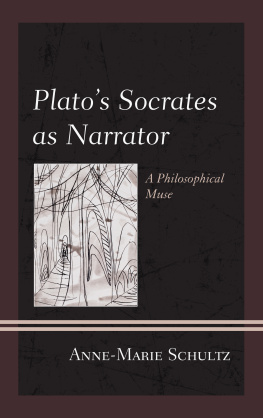


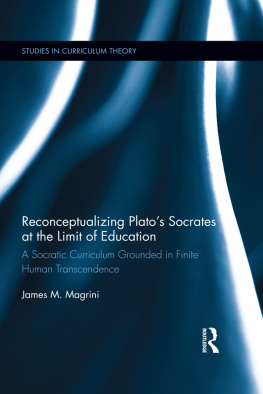
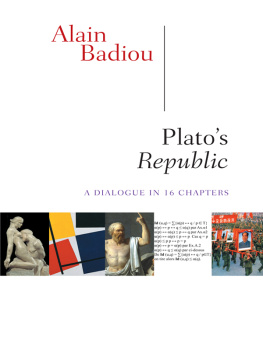
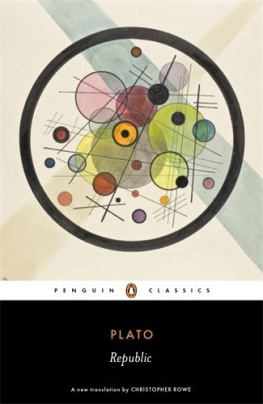

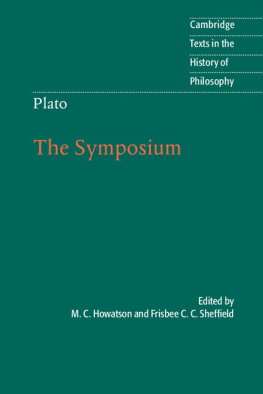
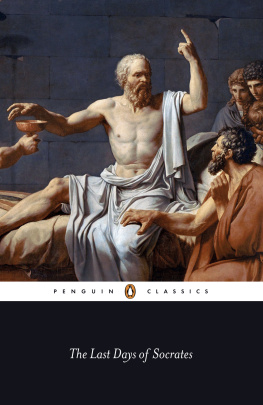
 TM The paper used in this publication meets the minimum requirements of American National Standard for Information Sciences Permanence of Paper for Printed Library Materials, ANSI/NISO Z39.48-1992.
TM The paper used in this publication meets the minimum requirements of American National Standard for Information Sciences Permanence of Paper for Printed Library Materials, ANSI/NISO Z39.48-1992.